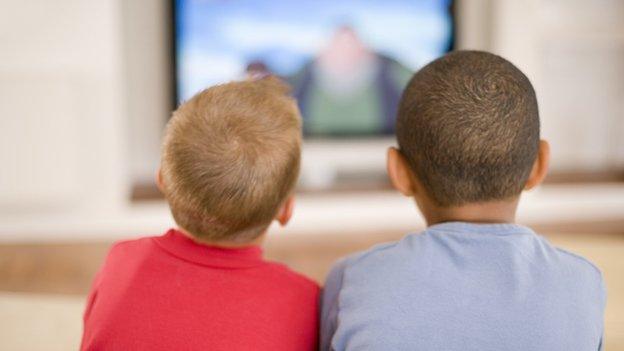Healthy eating: Companies to stop marketing unhealthy food to children, starting with ice cream
- Published
- comments
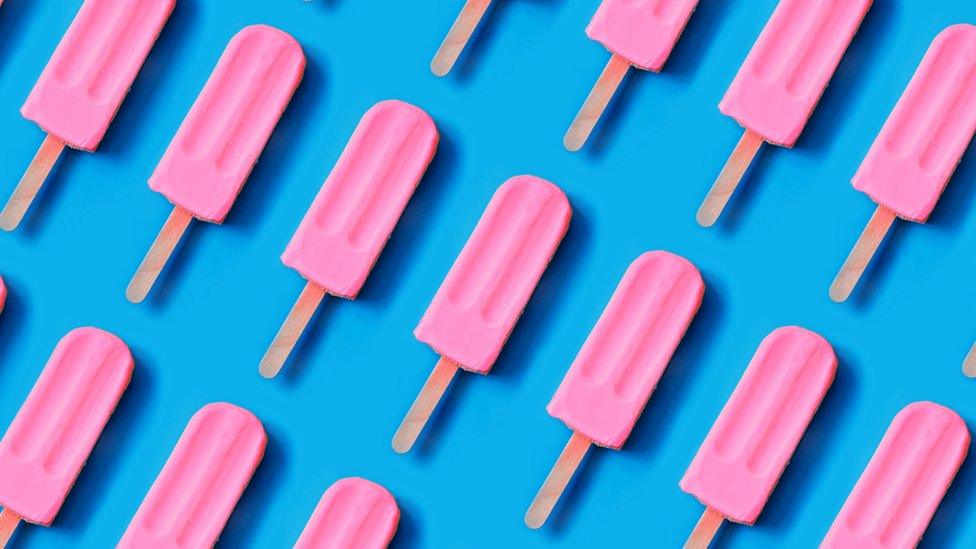
Massive food company Unilever said it's going to stop marketing its products to children.
It says it's because of a rise in the number of unhealthily overweight children.
The firm, which owns brands such as Twister ice cream and Popsicle ice lollies, said it would reduce the use of cartoon characters in its advertising.
It also promised to stop using social media stars or celebrities "who primarily appeal" to children under 12.
In the past, ads for Unilever ice creams have been taken down over complaints it marketed unhealthy food to children.
The new rules will apply to all of the firm's products by the end of 2020, starting with its Wall's ice cream brands.
The company also plans to launch a new, healthier range of ice lollies and ice creams for kids that will contain "no more than 110 calories and a maximum of 12g of sugar per portion".
Ben & Jerry's
Solero
Feast
Calippo
Choc Ice
Twister
Vienetta
Cornetto
Kinder Ice cream
Carte'Dor
Magnum
Soft Scoop
In 2016, 18% of children and adolescents - more than 340 million people aged five to 19 - were overweight globally, according to the World Health Organization (WHO). That's 4% more than in 1975.
It says there can be no doubt that the marketing of unhealthy foods is related to the problem, and recommends that governments set limits on how companies can advertise.
Changing the rules
The UK, Chile, Mexico and Ireland have all made changes over the last 10 years, introducing stricter rules when it comes to advertising to children.
But despite this there are still many adverts that target or appeal specifically to children.
In September last year a report by the Royal Society for Public Health (RSPH) said that children see too many unhealthy food options on their journeys to school.
A sugar tax was also introduced in April 2018, which mean people in the UK have to pay slightly more if they want to buy a drink that has over a certain amount of sugar in.
WATCH: KFC and Kellogg junk food ads targeting kids banned
In August 2018 KFC and Kellogg's were told to remove adverts which promoted junk food to children, by the Advertising Standards Authority. They make the rules about what adverts are appropriate to be shown online, on TV, or on posters or billboards.
Cadbury, Chewits and Squashies sweets have also had online adverts banned under new rules targeting junk food ads for children in the UK.
Hellman's Mayonaise
Pot Noodle
Colman's Mustard
And in 2016, a Unilever ad for Twister was pulled in Australia over complaints it encouraged young children to eat unhealthy foods.
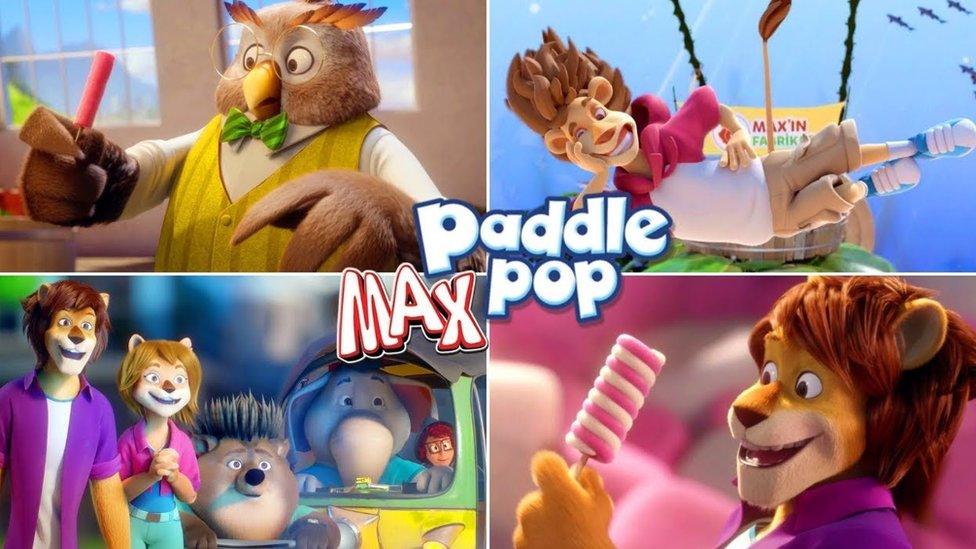
In Australia Twister is known as Paddle Pop
- Published25 February 2019
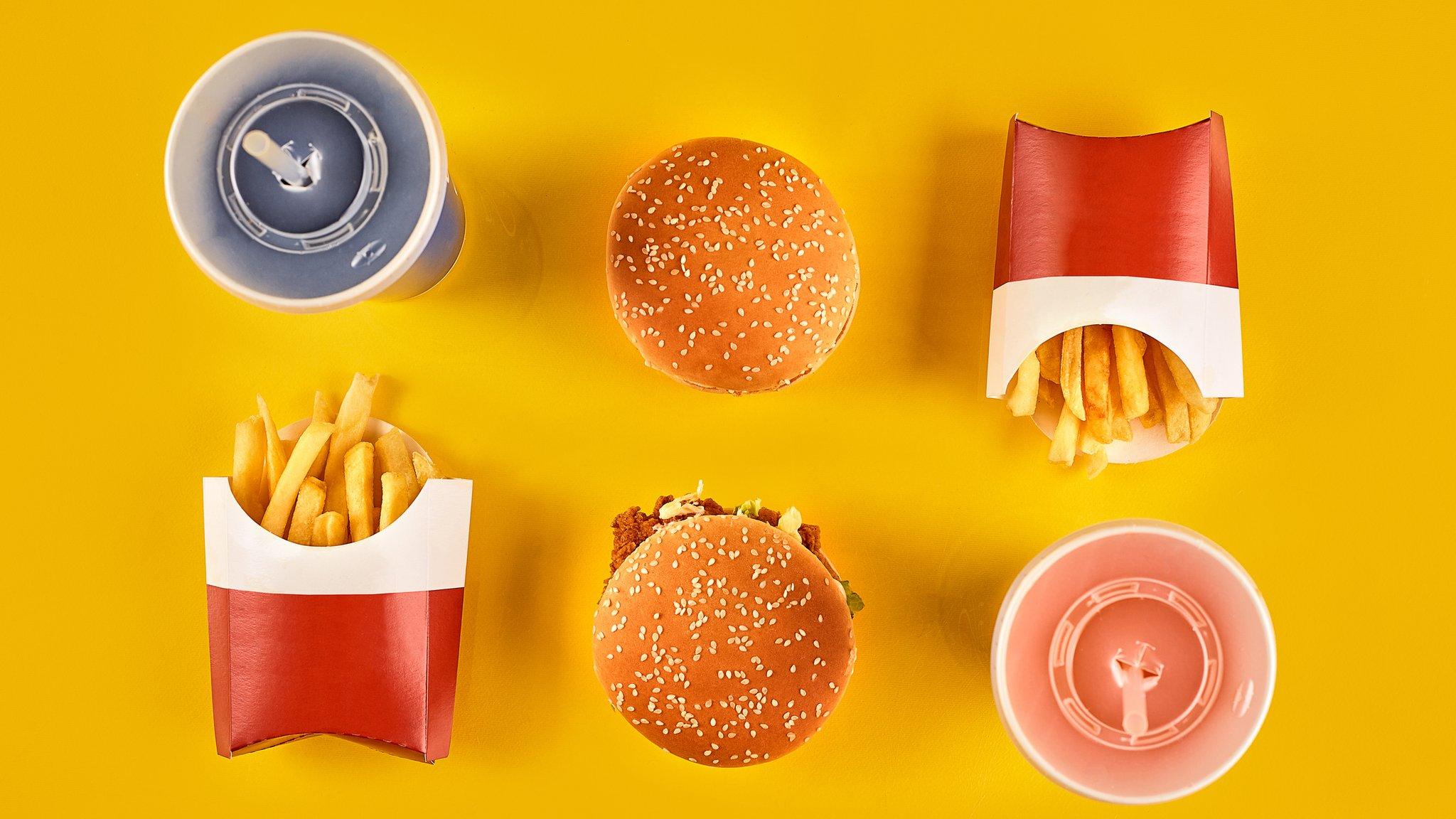
- Published8 August 2018
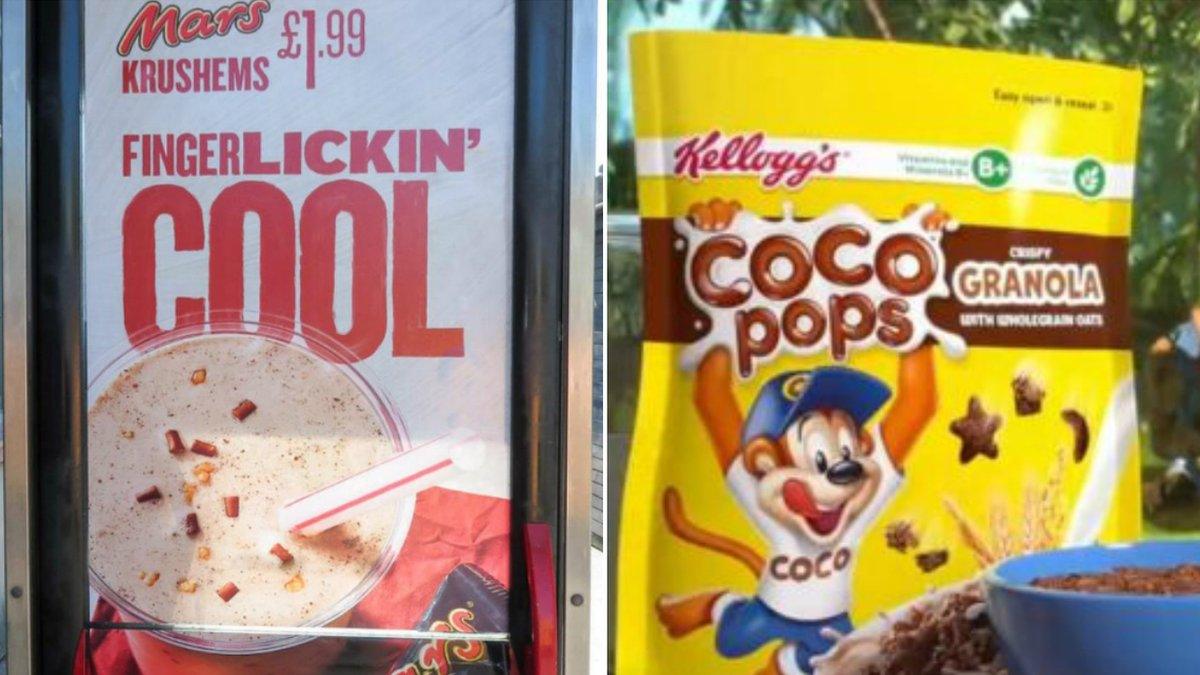
- Published11 April 2013
